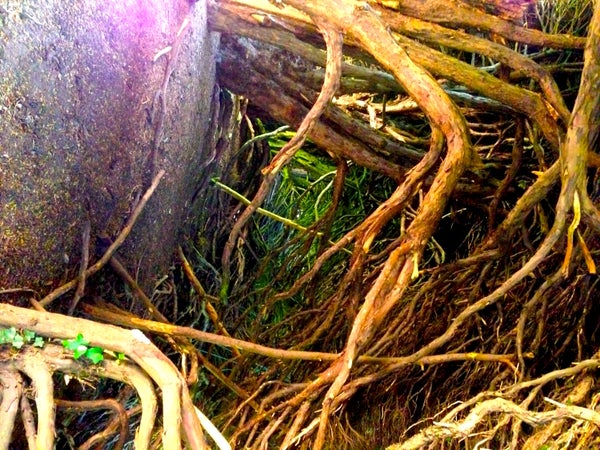This article was published in Scientific American’s former blog network and reflects the views of the author, not necessarily those of Scientific American
Despite remarkable accomplishments (and despite any claims to the contrary), we are in many, many respects still profoundly ignorant about the nature of the universe and its contents. That might seem depressing, but I think it's wonderfully exciting - there are so many things for the human intellect to study and attempt to understand, so much fun to be had and so much awe to explore!
For a little northern-hemisphere summer stimulation I've picked a triplet of puzzles spread across this and two other posts. These certainly aren't the only big conundrums for science - but they're good fodder for sun-dazed pondering.
#3: Origins of Consciousness & Intelligence
On supporting science journalism
If you're enjoying this article, consider supporting our award-winning journalism by subscribing. By purchasing a subscription you are helping to ensure the future of impactful stories about the discoveries and ideas shaping our world today.
In post #2 in this short series I talked about the origins of life as a cosmic mystery. But on a near-equal equal footing are the questions surrounding the origins and natures of the two slippery beasts we call consciousness and intelligence.
Look up consciousness on Wikipedia and you'll get a definition that starts with '...the state or quality of awareness..' Look up awareness and you'll get '...an ability...to be conscious of events...'
Don't you just hate it when that happens.
And of course when most of us use the term consciousness it has far more meaning for us than simply 'being aware' of the external world through sensory organs. Consciousness also references our sense of self, our awareness that we exist in some singular, personal way. A way that thinks, imagines, and creates.
Intelligence is perhaps a little more clearly defined (although one can also catch it sometimes being referred to as a general capacity for self-awareness). Intelligence is typically seen as a capacity to problem solve and to acquire knowledge and then apply that knowledge to help adaptation to prevailing circumstances. In this sense intelligence can clearly apply to a wide range of organisms and systems, and can be intimately wrapped up with consciousness.
But the really big questions are: why, and how does all of this happen (or at least happen on the Earth)?
I think that the root assumption has to be that the 4 billion-year ongoing natural experiment of molecular evolution on this planet has exposed certain advantages to these capacities in certain niches. At a very basic level; even the ability of microbes to sense, chemically communicate, and respond to their environments - while not something we'd comfortably call consciousness, is arguably a type of awareness. With these tools microbes can react to threats, or chase food, or cooperate in beneficial ways.
Add more layers to that awareness, as we see in 'higher' organisms, and there are presumably further positive consequences - the ability to predict outcomes, to plan, to choose between courses of action that yield more beneficial results. To navigate a much more complex landscape of costs versus benefits than a bacterium can.
Much has been studied and written over the years about the apparent drive of biological systems towards greater complexity, and complexity is associated with intelligence and consciousness. At the same time, the route to these things may have much to do with the inherent properties of emergent phenomena rather than a clearly delineated series of milestones in biological evolution.
Except, we really don't have any final answers yet. A great deal what I've written above is musing and conjecture. And when it comes to understanding how our own minds work - how the wiring of tens of billions of neurons actually produces awareness, feelings, experiences, and 'self', the so-called 'hard problem' of consciousness - we're largely in the dark.
I said this was a cosmic mystery though. So let me pose it that way: Irrespective of the precise details of what causes and allows consciousness and intelligence to occur, we are faced with a truly staggering fact. Somehow the phenomenon that we call the universe, born in a high energy state of randomized near-uniformity, has formed structures out of itself that have the capacity to turn around and examine themselves and examine the very thing that generated them.
That's mind-blowing. It's a nearly ludicrous affront to our sense of logic and order. It's like a glass of water becoming sentient and figuring out that it's a glass of water after a few billion years. It's as if Douglas Adams scripted the whole thing from the start.
And, as far as we know, it is quite possible that something equivalent has happened many times before across the universe. Somewhere there may be other conscious systems, other intelligences, that might also operate very differently than us.
That possibility, I think, could offer the greatest hope for figuring out the cosmic why and how of consciousness and intelligence. Although there are clearly already different types of consciousness and intelligence here on Earth - generated by different brains and different wirings, from elephants and dolphins to chickens and octopus - we don't know if this is the only way it can happen.
Our efforts at building artificial intelligences are making good progress and could help. An AI that plays itself at Go millions of times in order to learn how to win is arguably a 'new' form of intelligence. But is it enough to tell us something about the universal possibilities for intelligence and consciousness? I'm not sure.
So the quest to find other intelligence out there in the cosmos might well be how we finally learn the why and how of ourselves.
